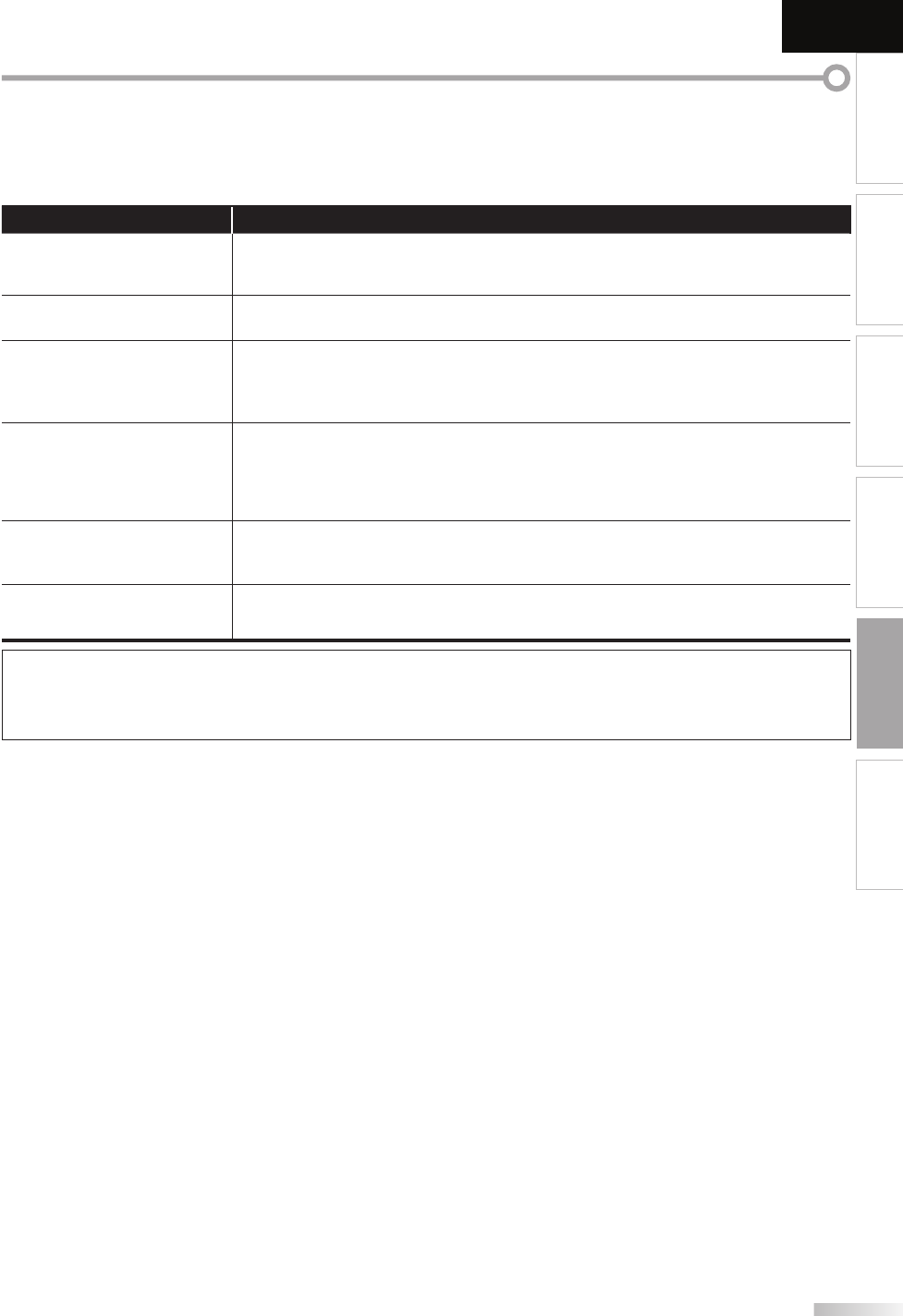
35
EN
INTRODUCTION
PREPARATION
WATCHING TV
OPTIONAL SETTING
TROUBLESHOOTING
INFORMATION
English
Symptom Remedy
You switch to a different input
and the volume.
• This unit will memorize the volume level from the last time you adjusted it.
• If the volume of the sound from another device is higher or lower, then the loudness
will change.
You switch to a different input
and the screen size changes.
• This unit will memorize the viewing mode from the last time you used the particular
input modes.
The display image does not
cover the entire screen.
• If you are using the unit as a PC monitor, make sure that “Horizontal Position” and
“Vertical Position” in “PC Settings” are set correctly.
• If you are watching TV or using the video, S-video, component video or HDMI with
480i input, press [SCREEN MODE] repeatedly to switch various screen modes.
Captions are displayed as a
white box.
No caption is displayed in the
Closed Caption-supported
program.
• Interference from buildings or weather conditions may cause captioning to be
incomplete.
• Broadcasting station may shorten the program to insert advertisement.
The closed caption decoder cannot read the information of the shortened program.
No caption is displayed when
playing back a disc or a cassette
tape containing captions.
• The disc or cassette tape may be illegally copied, or the caption signal might not have
been read during copying.
Black box is displayed on the TV
screen.
• The text mode is selected for caption. Select “CC1”, “CC2”, “CC3”, “CC4” or “Off”.
Note:
• The LCD panel is manufactured to provide many years of useful life. Occasionally a few non active pixels may appear as a fixed point of
blue, green or red. This is not to be considered a defect in the LCD screen.
• Some functions are not available in specific modes, but this is not a malfunction. Read the description in this manual for more details on
correct operations.


















